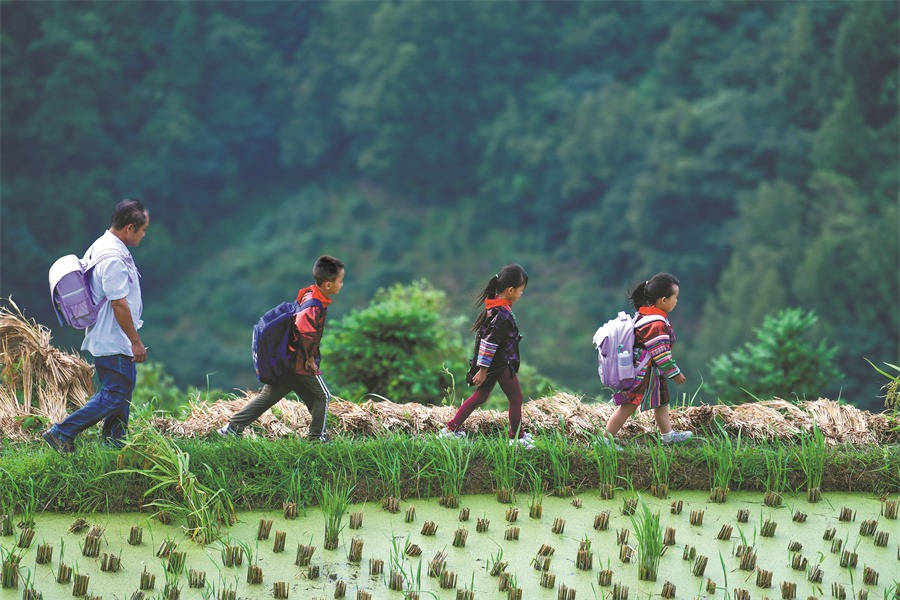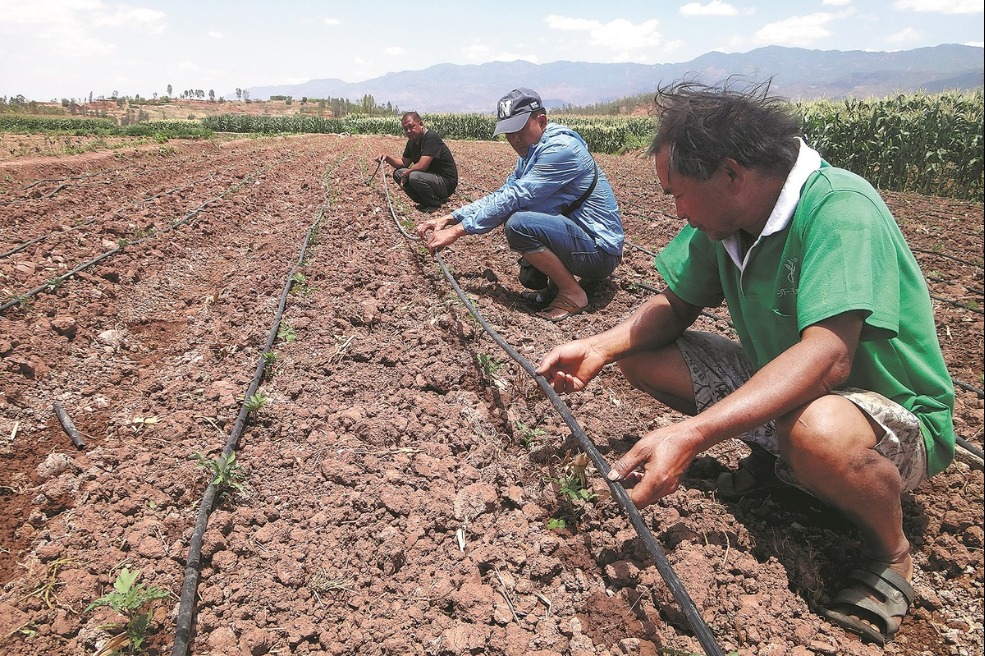HK set for a bigger role as cultural attache

The Hong Kong Chinese Orchestra prides itself on being an indispensable force in cementing Chinese culture and music internationally. Executive Director Celina Chin Man-wah says more needs to be done to solidify the city's status as a vibrant East-meets-West cultural exchange hub. Fang Xue reports from Hong Kong.

Driving Chinese culture and helping it to take its rightful place alongside Western art had been very much a part of Hong Kong life in the past.
That is the cherished mission of the Hong Kong Chinese Orchestra, which marks its 47th anniversary this year, championing its goal of lifting ethnic Chinese music and culture on the global stage. "It's a fitting tribute to Hong Kong's position as an East-meets-West center for international cultural exchange," says the orchestra's executive director, Celina Chin Man-wah.
Chinese cultural events are gathering steam in Hong Kong, making their mark and becoming increasing popular among parents and children during holiday celebrations and activities, she tells China Daily.
"Western forms of art had often been the norm for festive occasions in the past in this city. But we are now seeing more and more events that allow us to experience Chinese culture," says the arts veteran with more than two decades' experience. This has helped to nurture Hong Kong residents' cultural identity and confidence, she adds.
The HKCO, founded in 1977 as a government entity before becoming a nonprofit organization, held a concert this year, using the bianzhong - an ancient instrument known as chime bells - to play signature Chinese music works commemorating the 75th anniversary of the founding of the People's Republic of China.
The National Day performance, organized in collaboration with the Leisure and Cultural Services Department, drew acclaim from the audience. A duet, featuring the symphony of bianzhong, the "king of Chinese instruments", and the organ, the Western "king of instruments", stole the show.
The Hong Kong Special Administrative Region's status in the arts arena has been entrenched in the nation's 14th Five-Year Plan (2021-25), catalyzing the city's arts development, especially in the post-pandemic era.
According to the annual arts survey reports of the Hong Kong Arts Development Council, the SAR organized 10,946 physical arts and cultural programs in the 2018-19 financial year. In 2021-22, it hosted 7,963 physical and 2,005 online cultural events despite the COVID-19 pandemic.
Chief Executive John Lee Ka-chiu said Hong Kong will continue to host mega events to promote itself as a must-visit world city, with several featuring Chinese culture. From June to September, the city held its first Chinese Culture Festival with a myriad of activities - the Chinese Opera Festival, music, dance, film shows, exhibitions, meet-the-artist sessions and master classes. From Saturday through Nov 24, Hong Kong, for the first time, will host the Guangdong-Hong Kong-Macao Greater Bay Area Culture and Arts Festival, jointly presenting over 260 performances, exhibitions and exchange activities with other cities in the Greater Bay Area. They will include a wealth of signature arts and cultural events showcasing the region's characteristics and Lingnan culture.
Chin is pleased to note that the number of arts shows hosted by the business sector, independent arts groups or solo artists are rising. But she says Hong Kong needs to do more - and says the city needs 20 percent more arts administrators for performances and artistic activities.
Arts administrators are of vital importance to Hong Kong's ability to host arts events as a large number of these professionals are needed to help the city put on a wealth of activities, whether locally produced or with invited performers from abroad, says Chin who also helms the Hong Kong Arts Administrators Association.
Arts administrators manage the business and operational aspects of arts organizations, handling tasks like budgeting, fundraising, marketing and planning events to support artists and cultural institutions, and ensuring that creative projects reach their intended audience. Notable arts administrators include event coordinators, marketing managers and organizers of cultural activities. According to Chin, the association, which helps to advertise job vacancies for arts groups on its webpage, handles more than 800 job offers annually.
The HKCO is also facing a serious personnel shortage with over 100 concerts due to be held each year although its administrative team has been expanded from 20 to 30. The orchestra's marketing department originally had six people, but three of them have left, along with two marketing managers, crippling the team's ability to host events.























